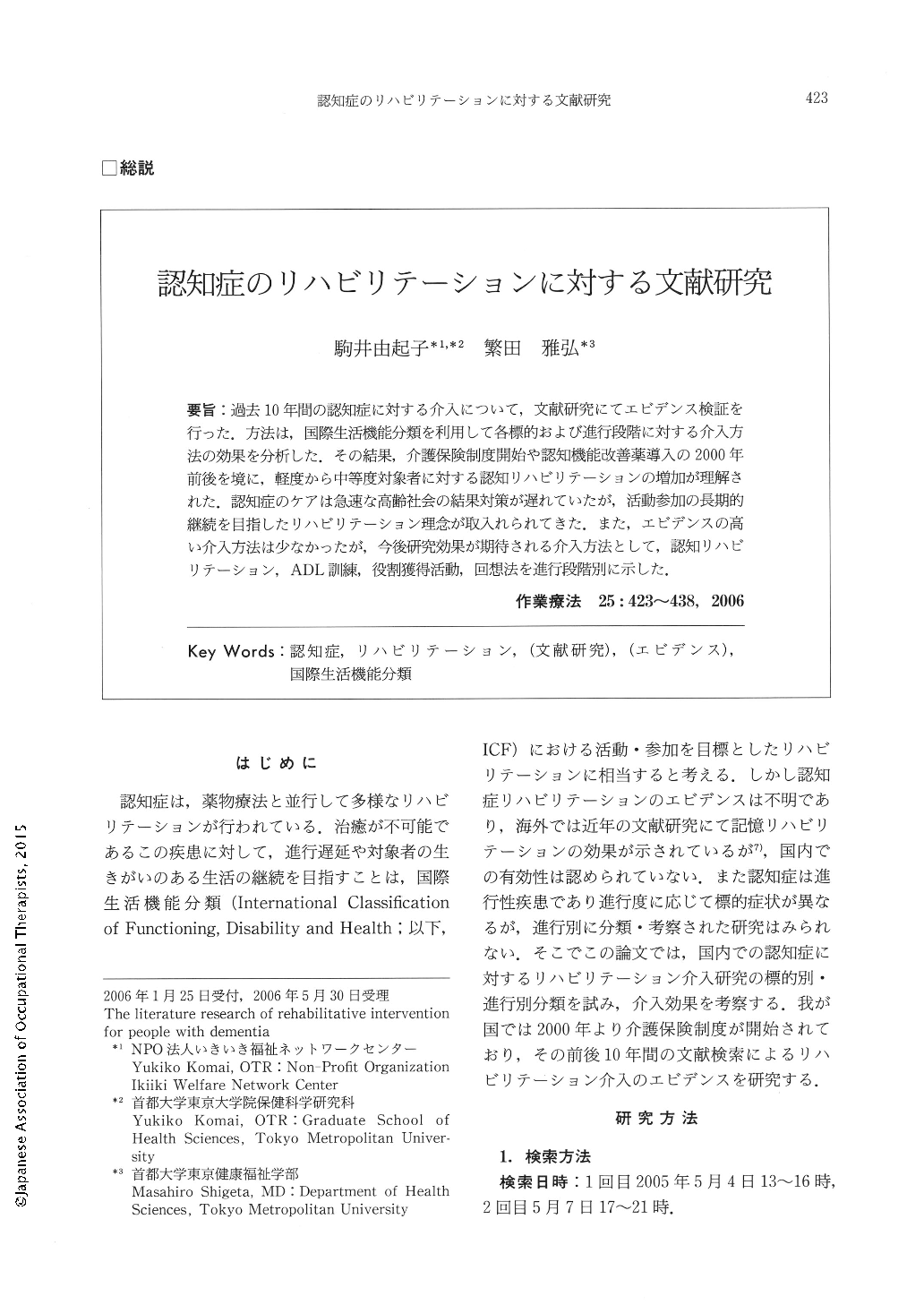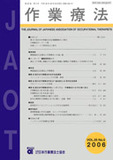Japanese
English
- 販売していません
- Abstract 文献概要
- 1ページ目 Look Inside
- 参考文献 Reference
- サイト内被引用 Cited by
要旨:過去10年間の認知症に対する介入について,文献研究にてエビデンス検証を行った.方法は,国際生活機能分類を利用して各標的および進行段階に対する介入方法の効果を分析した.その結果,介護保険制度開始や認知機能改善薬導入の2000年前後を境に,軽度から中等度対象者に対する認知リハビリテーションの増加が理解された.認知症のケアは急速な高齢社会の結果対策が遅れていたが,活動参加の長期的継続を目指したリハビリテーション理念が取入れられてきた.また,エビデンスの高い介入方法は少なかったが,今後研究効果が期待される介入方法として,認知リハビリテーション,ADL訓練,役割獲得活動,回想法を進行段階別に示した.
The objective of this review is to assess the clinical effects of rehabilitative intervention for demented subjects in Japan. Clinical trials published for the last ten years were identified from a search of the Japana Centra Revuo Medicina. Rehabilitative interventions were categorized into the components of International Classification of Functioning, Disability and Health, based on the contents of disability and the degree of severity. The situation of the rehabilitation for dementia changed on the boundary of the start of Long Term Care Insurance System in 2000 and the application of acetylcholinesterase inhibitor for Alzheimer disease in 1999. Rehabilitation for cognitive function was popularized especially for mild and moderate dementia. The purpose of the rehabilitation for dementia was not only the maintenance of quality of life as before, but, recently, also for the recovery of the impairments in daily activities and social participation. Although the evidence levels of rehabilitative interventions were not high enough, further evidences would be expected for cognitive rehabilitation, activities of daily living exercises, occupational therapy, and reminiscence.

Copyright © 2006, Japanese Association of Occupational Therapists. All rights reserved.


